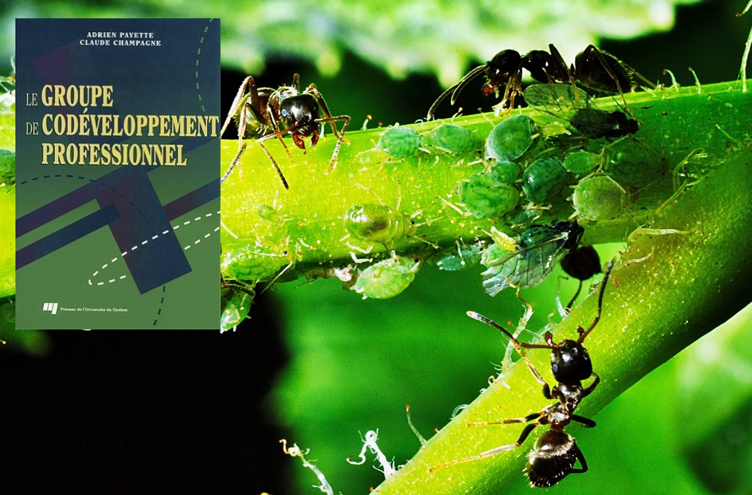Sometimes I feel it is important to go back to the roots. In the 1990s, in Montreal and Sherbrooke, Adrien Payette and Claude Champagne developed a new approach to Peer-to-Peer coaching which aims at revalorising experience and action while multiplying the forces of individual intelligences.
I learned about this practice in Sherbrooke and found it an unbelievable strong approach. Probably foundational principles give more comprehension on the “Why?”:
- Practice produces knowledge that science cannot produce.
- Learning professional practice is learning to act.
- Talking with others about experiences allows a learning that is impossible otherwise.
- The practitioner in action is a unique person in a unique situation.
- The subjectivity of the actor is as important as the objectivity of the situation.
- Work on professional identity is at the heart of Codevelopment.
- To learn how to act better needs to make room for incompetence.
The Professional Codevelopment group
It is a peer-to-peer coaching approach for people who believe they can learn from each other to improve and consolidate their practice.
Reflection, conducted in groups, is favoured by a structured consultation exercise which deals with real life issues of participants.
One after another, the participants take the client role to expose the aspect of their practice they want to improve, while others act as consultants to help him to enrich his understanding (think and feel) and its capacity to act (act).
When people are open to learn from each other Professional Development is still one of the best tools to let collective intelligence emerge with a very high ROI.
Didier
Source : Le Groupe de Co-Développement Professionnel, Adrien Payette et Claude Champagne, Presse de l’Université du Québec, 1997, ISBN 978-2-7605-0981-8
 partager
partager 